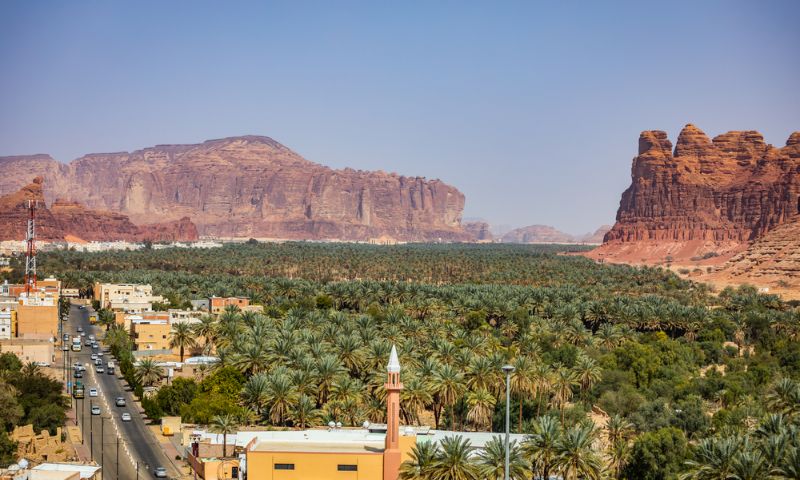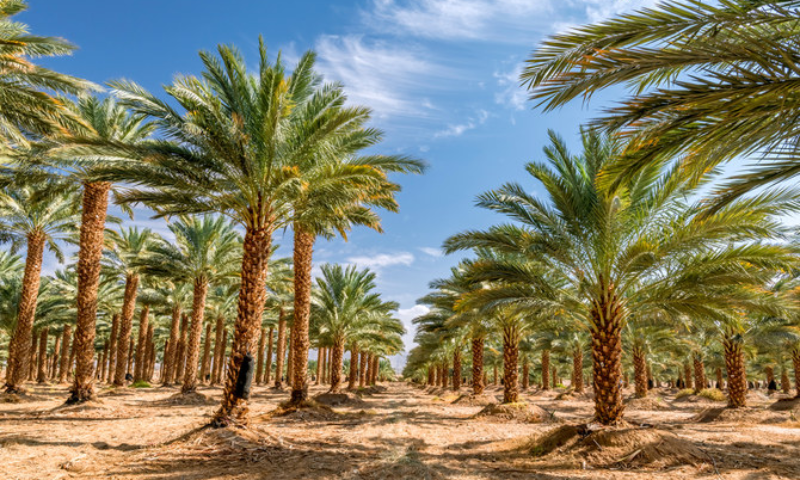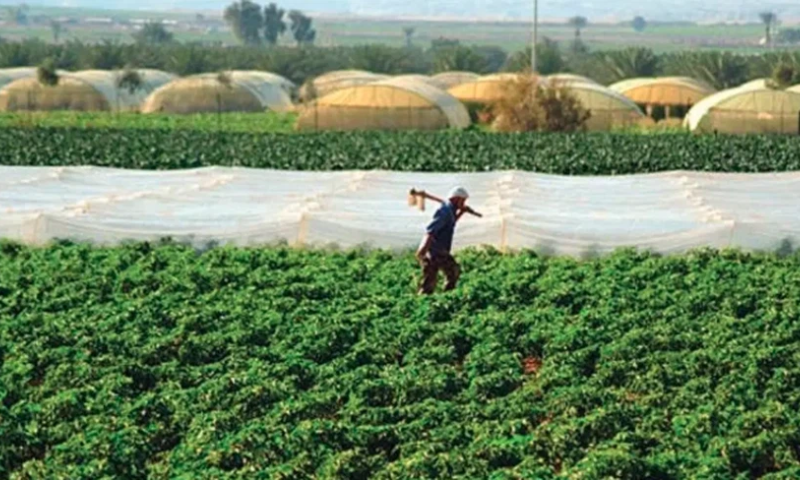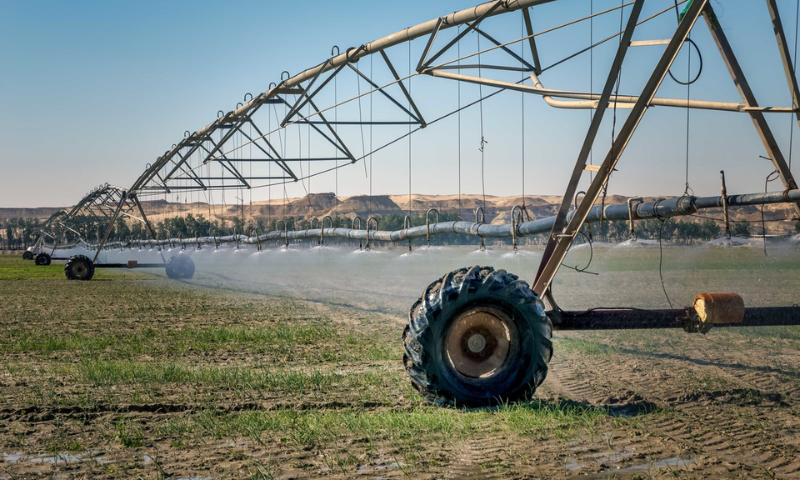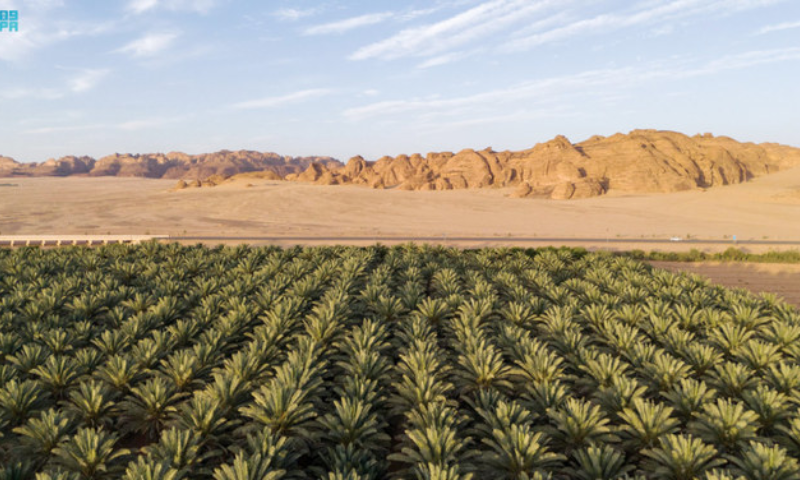The Kingdom of Saudi Arabia (KSA) has made remarkable strides in achieving self-sufficiency in various crops, even those requiring advanced technologies and sustainable agricultural practices. This achievement is largely the result of an integrated water management system that has significantly reduced the Kingdom’s water consumption for agriculture. By streamlining irrigation methods and investing in innovative technologies, Saudi Arabia has reduced agricultural water consumption from a staggering 86 percent of total water usage to just 70 percent. The Kingdom’s success in this area not only ensures greater food security but also paves the way for further collaborations, especially with nations like Pakistan.
Saudi Arabia’s Agricultural Sector
Historically, Saudi Arabia’s agricultural sector faced immense challenges due to its arid climate and scarce water resources. With over 90 percent of the Kingdom’s land classified as desert, it has traditionally been heavily reliant on food imports. However, recent reforms and innovations have allowed Saudi Arabia to produce key crops such as wheat, barley, and even fruits and vegetables domestically. The most significant contributor to this success has been the Kingdom’s focus on integrated water management.
Saudi Arabia has deployed several key strategies to manage its water resources more effectively. It has introduced drip and sprinkler irrigation systems, which are far more efficient than traditional flooding methods. These technologies ensure water is delivered directly to the root zones of plants, minimizing wastage. At the same time, Saudi Arabia has created alternative sources of water for agricultural use by recycling wastewater and desalinating seawater. The use of treated wastewater for irrigation now accounts for a significant portion of agricultural water supplies, reducing reliance on freshwater sources. The government has invested in precision agriculture, which uses data analytics, sensors, and drones to monitor and manage farming operations more efficiently. This data-driven approach optimizes the use of inputs like water and fertilizers.
Agricultural Sector of Pakistan
These advancements have allowed Saudi Arabia to become self-sufficient in wheat production and expand the cultivation of water-intensive crops like fruits and vegetables. The reduction of water consumption in agriculture from 86 percent to 70 percent marks a significant victory for sustainable development in the Kingdom. While Saudi Arabia has achieved notable progress, it still faces long-term sustainability challenges due to its limited water resources. To further enhance food security and diversify its agricultural investments, Saudi Arabia can benefit immensely from investing in the agricultural sector of Pakistan.
Pakistan’s geographic diversity, ranging from river plains to mountainous regions, allows for the cultivation of a wide range of crops throughout the year. The country has over 21 million hectares of arable land, much of which is underutilized due to lack of investment and infrastructure. Pakistan’s agricultural sector is heavily labor-intensive, offering ample opportunities for job creation. If Saudi Arabia were to invest in modernizing Pakistan’s agricultural infrastructure, the potential for employing a large portion of Pakistan’s rural workforce is significant.
Pakistan’s proximity to key Middle Eastern markets and its membership in regional trade organizations like SAARC and ECO make it an ideal partner for Saudi Arabia’s food security needs. Pakistan can serve as a regional hub for agricultural exports to the Middle East, Central Asia, and beyond. Pakistan is blessed with abundant water resources, primarily through the Indus River system. However, much of this water is currently mismanaged. With proper investment in water conservation and irrigation technologies, Pakistan’s agricultural productivity can be significantly enhanced.
For Pakistan to attract Saudi investment in its agriculture sector, the government must offer a range of incentives that make the country an attractive investment destination. Offering tax exemptions on profits and subsidies for the import of agricultural equipment would encourage Saudi businesses to establish large-scale farming operations in Pakistan. Islamabad could also provide long-term, affordable land leases for Saudi investors in areas with high agricultural potential. These agreements would ensure that investors have the security and stability needed for long-term investments.
Special Economic Zones
There is also a need to establish agricultural-focused Special Economic Zones (SEZs) where Saudi investors receive additional benefits like reduced import/export duties and infrastructure support could further incentivize foreign investment. The Pakistani government can foster public-private partnerships in which Saudi investors collaborate with local farmers and agribusinesses, combining Saudi capital with local expertise to maximize yields and efficiency. Moreover, Pakistan and Saudi Arabia could jointly invest in agricultural R&D centers focused on climate-resilient crops, water management techniques, and precision farming technologies that would benefit both nations.
Saudi Arabia’s success in achieving agricultural self-sufficiency through integrated water management and modern technologies is an inspiring model for sustainable development. By investing in Pakistan’s agriculture, the Kingdom can secure long-term food security, diversify its investments, and contribute to the economic development of Pakistan. In turn, Pakistan should offer a range of incentives to attract Saudi investors, creating a win-win scenario that benefits both nations. If properly executed, this collaboration could create millions of jobs, enhance agricultural productivity, and strengthen regional economic ties.













